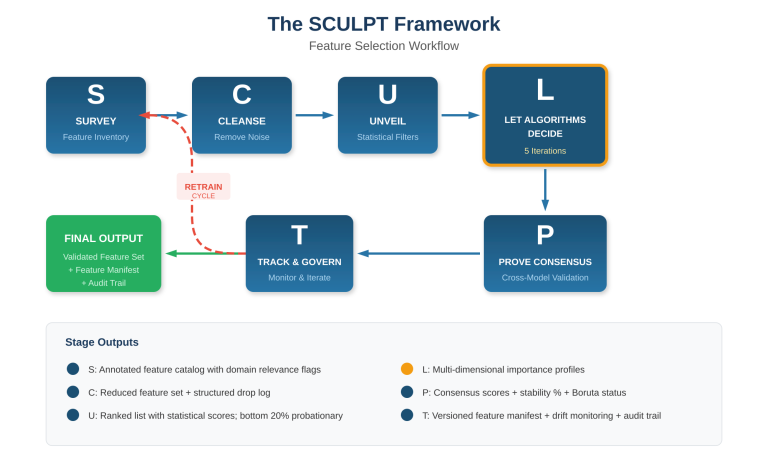In recent years, technology has transformed many areas of our lives. It’s revolutionizing how we care for our pets, especially dogs. From wearable devices to AI-powered health solutions, modern tech is helping our furry friends stay healthy and happy in exciting and innovative ways.
Wearable Devices for Dogs
Just like human fitness trackers, wearable devices for dogs are becoming increasingly popular. These gadgets, often attached to a dog’s collar, track their activity levels, sleep patterns, and heart rate. Pet owners can gain valuable insights into their dog’s health and well-being by monitoring these metrics. For instance, a device like FitBark helps owners keep track of their dog’s physical activity and rest, ensuring they get enough exercise and proper sleep.
Wearable devices can also alert owners to potential health issues. If a usually active dog suddenly becomes lethargic, the device can notify the owner, prompting them to seek veterinary advice. This early warning system can be crucial in catching and addressing health problems before they become serious.
Moreover, these devices often sync with smartphone apps, providing real-time data and health reports. Owners can set pet activity goals, monitor progress, and share the data with their vet. This level of monitoring helps ensure that dogs lead active and healthy lives tailored to their specific needs and lifestyles.
Smart Feeders
Feeding our pets might seem straightforward, but it’s easy to overfeed or underfeed them. Smart feeders can help solve this problem by dispensing the right amount of food at scheduled times, ensuring a balanced diet for your dog. The Petnet SmartFeeder, for example, can be controlled via a smartphone app, making it easy to adjust feeding schedules and portions, even when you’re not home.
These smart feeders are equipped with features like portion control, which helps prevent obesity by providing the correct amount of food based on the dog’s size, age, and activity level. Some smart feeders even have cameras, allowing owners to check on their pets during mealtime. This can be particularly useful for pet owners who spend long hours at work or travel frequently.
Additionally, intelligent feeders can send notifications to the owner’s phone when the food supply is running low, ensuring that the pet never runs out of food. Integrating technology into everyday pet care routines makes managing a pet’s diet much easier and more precise, contributing to their overall health and well-being.
Telemedicine for Pets
Veterinary telemedicine is a growing field that makes it easier for pet owners to consult with vets without leaving their homes. Through video calls and online chats, vets can advise, diagnose minor issues, and suggest treatments. Apps like Fuzzy Pet Health offer 24/7 access to vets, providing pet owners peace of mind and quick help in emergencies.
Telemedicine is particularly beneficial for pets with chronic conditions or those who experience anxiety during vet visits. By consulting with a vet from the comfort of their home, pets can receive the care they need without the added stress of traveling to a clinic. This can lead to better health outcomes and a more positive experience for the pet and the owner.
Moreover, telemedicine can be a lifesaver in emergency situations. If a pet suddenly falls ill or gets injured, immediate access to veterinary advice can make a significant difference. Vets can guide owners on first aid measures and determine whether a trip to the clinic is necessary. This prompt response can prevent complications and ensure the pet receives timely care.
AI and Machine Learning in Canine Health
Artificial Intelligence (AI) and Machine Learning (ML) significantly improve dog health. These technologies analyze large amounts of data to identify patterns and predict health issues before they become serious. For example, researchers have developed AI tools that can analyze images of a dog’s eyes to detect signs of cataracts or other eye conditions, allowing for early detection and treatment.
AI and ML algorithms are also being used to detect unusual behavior in dogs by analyzing data from wearable devices. These algorithms can identify subtle changes in a dog’s activity or sleep patterns that might indicate stress, pain, or illness. By acting as an early warning system, these technologies enable timely veterinary intervention, potentially saving the pet from more severe health issues.
Furthermore, AI is being used to develop personalized health plans for dogs. By analyzing data from various sources, including wearable devices, vet records, and owner inputs, AI can create customized health and wellness plans tailored to each dog’s unique needs. This holistic approach to pet care ensures that dogs receive the best possible care, improving their overall health and quality of life.
Smart Toys
Keeping dogs mentally stimulated is as essential as their physical health. Smart toys challenge dogs’ minds, keeping them engaged and reducing boredom-related behavior problems. The CleverPet Hub, for instance, is an interactive game console for dogs that uses lights, sounds, and touchpads to create puzzles for dogs to solve, rewarding them with treats for correct answers.
Smart toys offer a range of benefits for dogs, from improving cognitive skills to providing physical exercise. These toys can be especially beneficial for high-energy breeds that require a lot of mental and physical stimulation. By engaging in interactive play, dogs can burn off excess energy, reducing the likelihood of destructive behaviors such as chewing or digging.
Moreover, smart toys can strengthen the bond between pets and their owners. Many of these toys can be controlled via smartphone apps, allowing owners to participate in their dog’s playtime even when not physically present. This interaction can help alleviate separation anxiety and keep dogs happy and engaged throughout the day.
Health Monitoring Apps
Health monitoring apps for dogs are another innovative technology making waves in pet care. These apps allow owners to keep track of their pet’s health records, schedule vet appointments, and set reminders for medications and vaccinations. With all this information in one place, owners can manage their pet’s health more efficiently.
For example, an app like Pawtrack tracks a dog’s location and monitors their activity levels and health status. Owners can set health goals, track progress, and share the data with their vet during check-ups. This comprehensive approach to health monitoring ensures that dogs receive consistent and proactive care.
Additionally, these apps often provide educational resources on pet care, offering tips and advice on everything from nutrition to behavior training. Owners can ensure their dogs lead healthy, happy lives by staying informed and proactive.
Advanced Diagnostics
Advanced diagnostic tools are another area where technology is significantly impacting canine health. These tools enable vets to diagnose and treat health issues more accurately and efficiently. For example, handheld ultrasound devices allow vets to perform quick and noninvasive scans, providing immediate insights into a pet’s condition.
Similarly, digital radiography systems offer high-resolution images that can be easily shared with specialists for further analysis. This technology speeds up the diagnostic process and improves the accuracy of diagnoses, leading to better treatment outcomes.
Moreover, advanced diagnostic tools are becoming more accessible to pet owners through mobile apps and devices. For instance, apps can now analyze a dog’s skin condition through photos, identifying potential issues such as allergies or infections. By leveraging these tools, owners can catch health problems early and seek veterinary care before the condition worsens.
Genetic Testing
Genetic testing is another exciting development in canine health. By analyzing a dog’s DNA, these tests can provide valuable insights into its breed, ancestry, and potential health risks. This information can help owners make informed decisions about their pet’s care and lifestyle.
For example, genetic testing can identify predispositions to specific health conditions, allowing for proactive management and preventive care. Suppose a test reveals a dog is at risk for a particular disease. In that case, owners can work with their vet to develop a customized care plan to mitigate those risks.
Additionally, genetic testing can provide insights into a dog’s behavior and temperament. Understanding a dog’s genetic makeup can help owners tailor their training and socialization strategies, ensuring their pet’s needs are met effectively.
Virtual Training Programs
Training is an essential aspect of pet care, and virtual training programs make it easier for owners to provide their dogs with the education they need. These programs offer online courses, video tutorials, and one-on-one coaching sessions with professional trainers, all from the comfort of home.
Virtual training programs can be particularly beneficial for busy pet owners needing more time to attend in-person classes. By leveraging online resources, they can work on training at their own pace and schedule. This flexibility ensures that dogs receive consistent and practical training, improving their behavior and obedience.
Moreover, virtual training programs often include interactive elements, such as live video sessions and real-time feedback, enhancing the learning experience for both the pet and the owner. By providing a convenient and accessible way to train their dogs, these programs contribute to better-behaved and well-adjusted pets.
Smart Home Integration
Integrating smart home technology with pet care is another innovative way to enhance a dog’s health and well-being. Smart home devices like automated pet doors, climate control systems, and security cameras can create a safe and comfortable dog environment.
For instance, automated pet doors can be programmed to open and close at specific times, allowing dogs to go outside for exercise and bathroom breaks while ensuring their safety. Climate control systems can be adjusted to maintain a comfortable temperature in the home, preventing overheating or chilling, especially for pets with specific health needs.
Security cameras allow owners to monitor their pets in real-time, ensuring their safety and well-being while away. These cameras often come with two-way audio, enabling owners to interact with their pets and provide reassurance, reducing separation anxiety.
By integrating smart home technology into pet care routines, owners can create a safe, comfortable, and engaging environment for their dogs, contributing to their overall health and happiness.
Modern technology makes monitoring and maintaining our dogs’ health more accessible. From wearable devices and intelligent feeders to telemedicine and AI applications, these innovations are enhancing the quality of life for our furry friends. By leveraging these tools, pet owners can provide proactive and personalized care, ensuring their dogs lead long, healthy, and happy lives.
As technology evolves, we can look forward to even more innovative solutions that will further improve canine health and well-being. Embracing these advancements benefits our pets and strengthens the bond between humans and their beloved companions.











